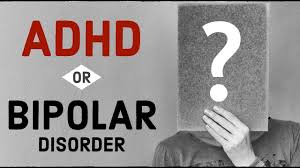Co-Occurrence of ADHD and Bipolar Disorder
May 11, 2023
This paper discusses the co-occurrence of Attention Deficit Hyperactivity Disorder (ADHD) and Bipolar Disorder. It examines the symptoms and diagnostic criteria for both disorders as well as potential causes, risk factors, and treatments of their comorbid state. The paper further examines studies that suggest a possible genetic link between the two conditions and how they may interact in terms of symptom manifestation. Finally, it explores implications for diagnosis, treatment, and research into this complex condition.
While ADHD is commonly thought to be a childhood disorder, its symptoms can persist or develop in adulthood. Symptoms include an inability to focus on tasks, hyperactivity or impulsivity, forgetfulness or lack of attention to detail, difficulty following instructions or organizing work routines. Meanwhile, Bipolar Disorder is usually diagnosed in adolescence or early adulthood and involves episodes of depression, mania, and mixed states. Symptoms include extreme mood swings, disorganized behavior, racing thoughts, irritability, impaired judgment, sleep disturbances and difficulty with relationships.

ADHD and Bipolar Disorder have several overlapping symptoms that can make it difficult to diagnose one or both conditions accurately. It is believed that underlying genetic factors may play a role in the comorbidity of these two disorders. This includes studies suggesting there might be shared genetic variations which result in higher risk of developing both conditions simultaneously. Additionally, environmental factors such as stressful experiences may contribute to the development of either condition independently or in combination with each other.
Treatment for co-occurring ADHD and Bipolar Disorder must be tailored to the individual. In most cases, a combination of medication (such as mood stabilizers or psychostimulants) along with psychotherapy is recommended. However, it is important to note that while medications can target symptoms of both conditions, they cannot address underlying causes or eliminate the risk of relapse.
To conclude, co-occurrence of ADHD and Bipolar Disorder poses unique challenges for diagnosis and treatment. It is essential that further research is conducted into their shared genetic variations and environmental risk factors in order to improve the efficacy of interventions for this complex condition. Additionally, healthcare providers should remain aware of the possibility for comorbidity between these two conditions in order to provide appropriate care for those affected.
